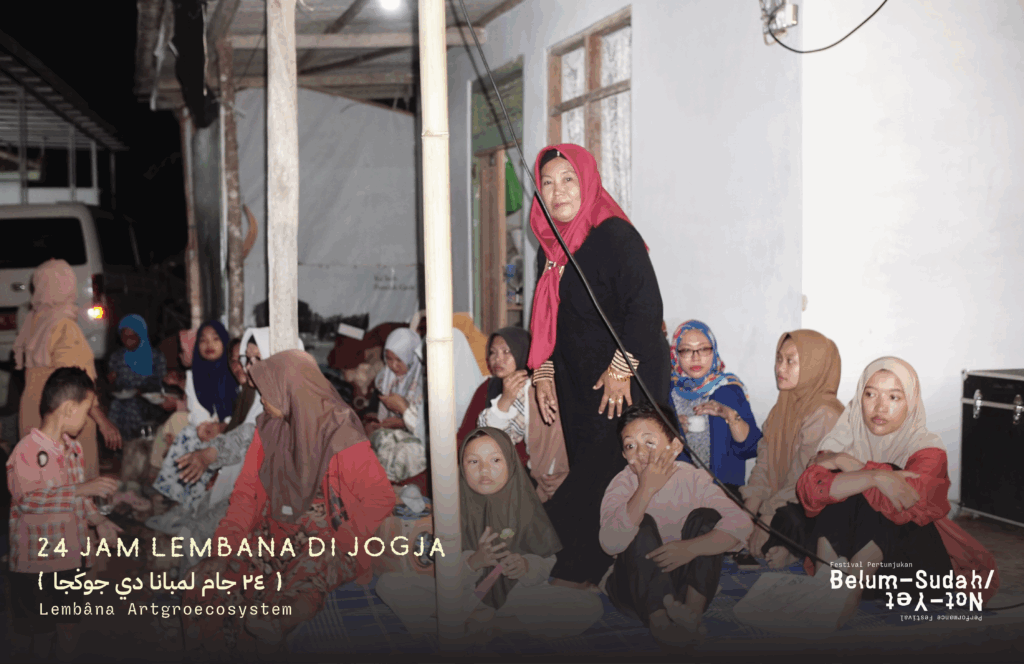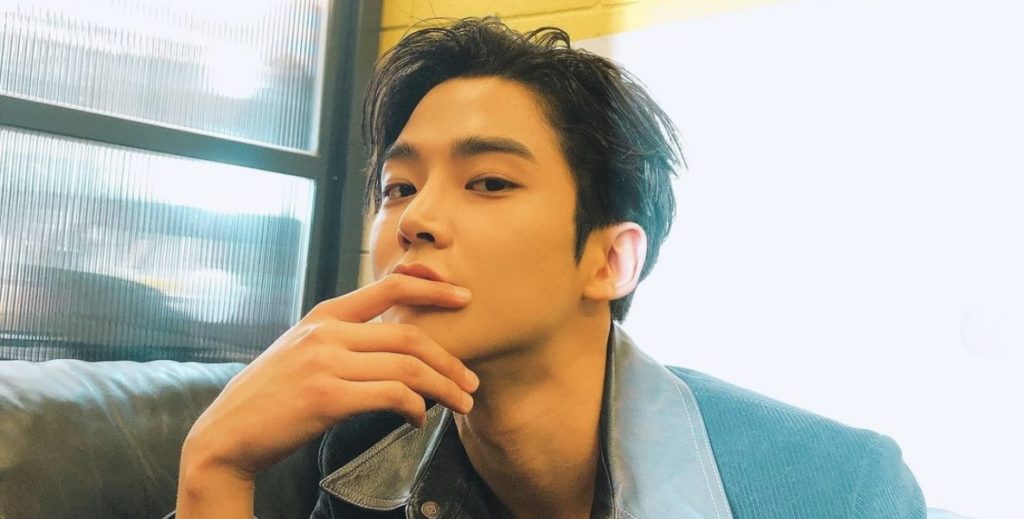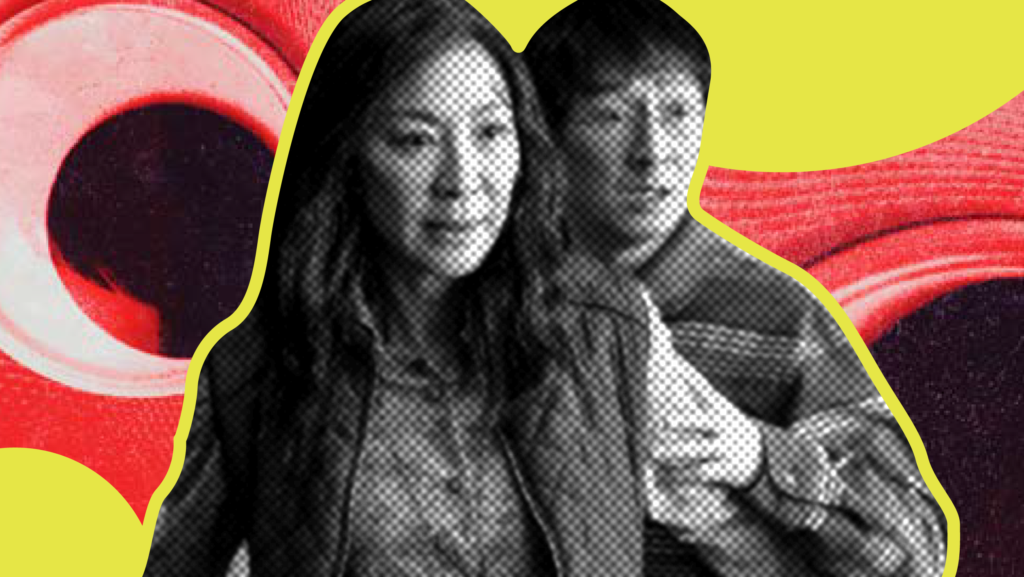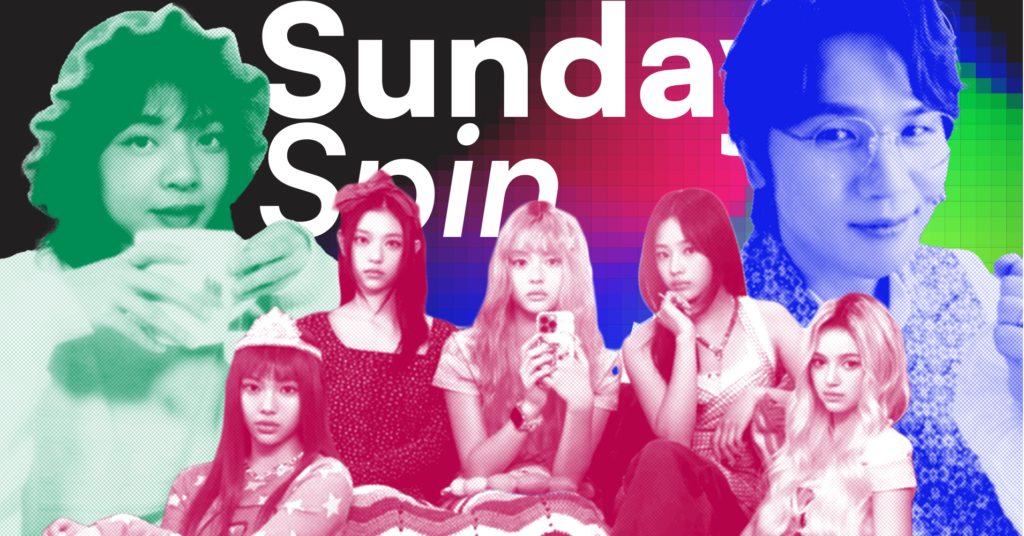Ricky Sim Comes Out With Gaysian Coming-of-Age Comedy Show
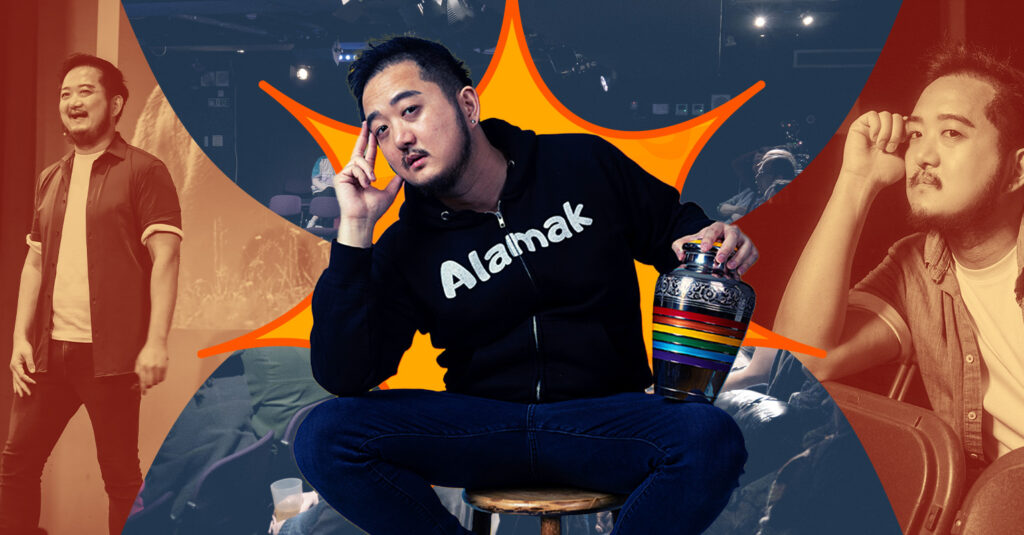
What do you get when you cross sexuality, humor, and mortality? As it turns out, comedian Ricky Sim has the answer.
Originally from Malaysia, Ricky is a New York City-based lawyer-turned-comic whose stand-up has taken him across the globe. His recent work taking the world by storm, Coming Out to Dead People, is an autobiographical stand-up comedy show about navigating self-discovery amid grief and cultural expectations. At the center of it all, Ricky grapples with two things: his decision to come out as gay and his mother’s terminal cancer diagnosis.
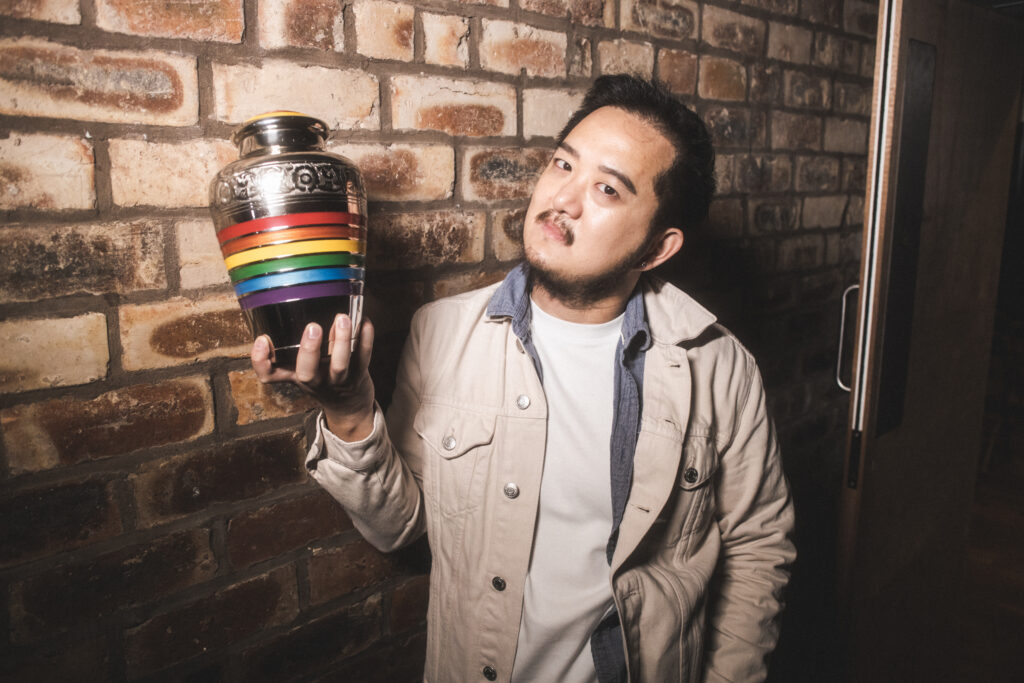
In light of the show’s success, EnVi chatted with Ricky about Asian identity, queerness, grief, and how these came together to build the narrative for Coming Out to Dead People. We also had the exclusive opportunity to attend his sold-out NYC show on July 18, which we’ll take you through below!
The Road Less Traveled
Growing up, Ricky’s sense of humor was shaped in part by his family. Long before he picked up a microphone, he noticed how his relatives would use humor to deal with difficult subjects. Where repressed emotions lied, slapstick and passive-aggressive jokes took their place. It wasn’t just about making each other laugh — in some ways, it disarmed their pain. Ricky didn’t know this at the time, but his family’s relationship with comedy would one day be integral to shaping his own.
At 13 years old, Ricky moved to New York City, where he spent the rest of his adolescence in Flushing, Queens. While the long ride on the 7 train was the bane of his existence (and now the butt of his jokes), the city is where his journey to stand-up began. He first encountered it through Margaret Cho — namely one of her specials at the Apicha Community Health Center, the first organization to do anonymous HIV testing targeting Asian folks.
From there, Ricky began finding his way into the city’s queer spaces, which created a sense of belonging he didn’t have in Malaysia. Reflecting on those years, Ricky shared how transformative that early 2000s scene was, especially for queer Asians trying to find connection.
One space that stood out among the rest was The Web, a small but influential club formerly in Midtown Manhattan. Although its doors are closed for good, Ricky recalled it with fondness — it welcomed queer Asian men at a time when many mainstream gay venues did not.
“It was one of the early great spaces for us to talk to people and find community,” he explained. “There were a lot of gay clubs in New York, but they had a code against how many queer Asian men could go in, unless it was a gaysian accompanied by a white guy. I love how after 20 years, the queer nightlife in New York has evolved.”
When Ricky first arrived to the U.S., Massachusetts was the only state that had legalized same-sex marriage. LGBTQ+ rights were still an uphill battle, but glimmers of queer joy — especially online — kept him hopeful. From coming-out stories to wedding videos, he was inspired by the growing waves of acceptance towards queer youth. However, as he watched the compilations of tearful embraces on his screen, he began to dwell on questions surrounding his own circumstances.
“Part of me wonders what would have happened, had my mom been alive. Would I have become a different person? It’s that sort of regret and wondering that drove me to write the show,” Ricky reflected.
Two years after his mother passed away, Ricky enrolled in a writer’s workshop where he wrote a humor essay about his mother’s death. While it wasn’t the sole basis for his solo show, this was yet another early spark that would eventually grow into Coming Out to Dead People.
“A lot of people might not want to talk about grief, death, or cancer,” he said. “I hope that with humor, I can normalize those conversations.”
The writer’s workshop also offered stand-up, but with law school just around the corner, Ricky didn’t believe it was the right time — yet. It wasn’t until a decade and a Juris Doctor later that he’d make his way back to that very same teacher. Ironically, it was among the textbooks and court cases in law school that Ricky began to find his voice.
“I performed my first show in 2022. I basically spent a lot of money in law school to become a comedian,” he laughed.
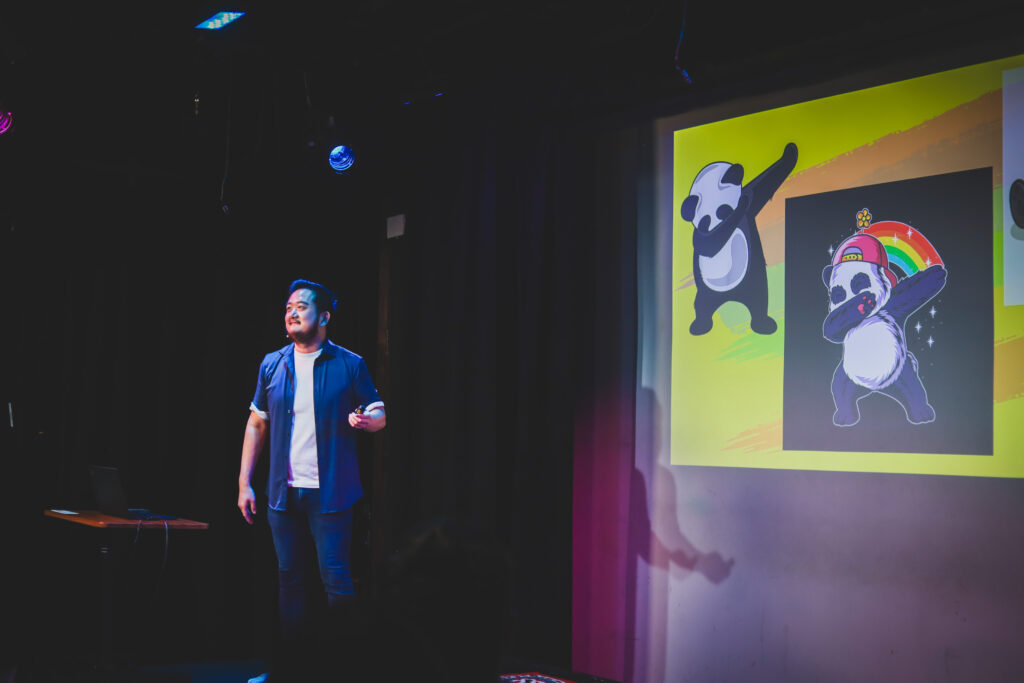
Navigating Two Worlds
For Ricky, Coming Out to Dead People is about more than owning his identity. It speaks to the delicate intersection between culture and sexuality, especially for his fellow gaysians walking this tightrope.
“Coming out has become so Westernized and Americanized in the narrative that there’s almost no room for queer Asian children to know that there’s another type of acceptance,” Ricky explained. “Especially in a more traditional Asian family, it’s not like those YouTube videos where the parents say ‘I love you. Everything will be alright.’ It’s a process. My dad took more than ten years to really understand and embrace it.”
In many ways, Ricky’s show is also a coming-of-age story. The focal point isn’t the act of coming out, but rather everything that surrounds it: the hints, the denial, the “firsts” of everything, and the aftermath. It’s a comedy show through and through, but beyond that, it unravels the layers of identity that are often flattened in mainstream queer narratives. His storytelling style is incredibly intimate, dispelling the distance of the stage and feeling more like a conversation with a friend. Many audience members come away not just entertained, but seen. To this end, Ricky shared a fan’s anecdote from a previous show.
“After coming out, his parents accepted him, but in a way, he felt like he was shoving them in the closet. Every time his parents’ friends and family ask about him or why he’s not married, they have to find ways to avoid the topic,” he said. “We’re from such a collectivist society… it’s not like we come to America and don’t have to think about it. It’s the community our parents were in.”
As a cultural conversation, Coming Out to Dead People also includes visual and musical references to Ricky’s childhood. In addition to the crowd’s laughter that he earns with ease, it’s the show’s emotional fragility that truly makes it a one of one. It’s equal parts hilarious and gut-wrenching, never pulling punches and hitting the mark every single time. For those who have reckoned with the friction between culture and sexuality, this show offers both a refreshingly honest perspective and a space for relief.
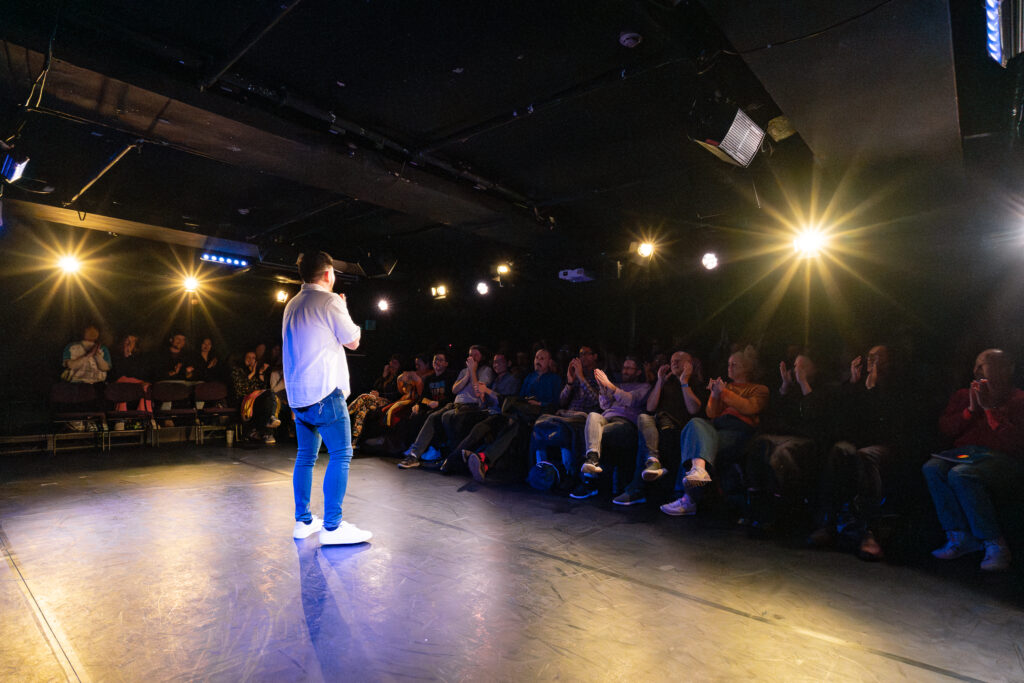
Dazzling NYC’s Public Theater
Stepping inside Joe’s Pub on July 18, the historic performance venue felt like an intimate cabaret setting with stunning blue spotlights and candlelit tables. Within minutes, the room was filled with movement and excited chatter for Ricky’s sold-out show.
The show began with comedian Ophira Eisenberg, who warmed up the audience with a brief, but witty routine that had the crowd laughing within the first minute. Following her brilliant opener was Ricky, whose highly-anticipated performance was the centerpiece of our Friday night. Instantly, he kicked us off by comparing grief to sex, setting the tone for a show that’s as hilarious as it is dark — just in case the rainbow-striped urn at the entryway didn’t already.
At its core, Coming Out to Dead People is for gaysians teetering at the precipice of culture and sexuality, all while carrying the weight of filial piety. Ricky takes audience members on a journey through his memories as a young gaysian, seamlessly transitioning between humor and raw emotion. We laughed, we cried, and we left the show feeling like a part of us healed with it.
To keep up with Ricky Sim and any future shows, be sure to visit his official website and Instagram (@rickeerick)!
Interested in reading about more Southeast Asian creatives? Check out EnVi’s piece on IV of Spades’ comeback here!
